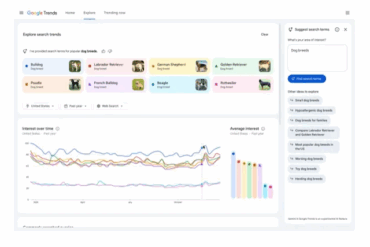By Nick Statt
It’s too early for VR ads. Facebook found out the hard way.
Facebook’s quest to experiment with advertising in virtual reality took on the familiar three-act structure of tech backlash.
The test was announced on June 16 and caused reasonable concern among critics and players over the ensuing three days. By Monday of last week, the only game developer signed up to test ads — Blaston maker Resolution Games — pulled out. It leads us all to wonder why none of the smart people in charge at Oculus didn’t see this coming.
The test crashed before it even started. It’s now unclear how Facebook intends to proceed, but players have made their voices heard loud and clear.
- Resolution was the first to break the silence. “After listening to player feedback, we realize that Blaston isn’t the best fit for this type of advertising test,” the developer wrote on Twitter. “Therefore, we no longer plan to implement the test.”
- The developer was fast becoming a focal point of the criticism, suffering a barrage of one-star reviews for Blaston (a $9.99 game) on the Oculus Store. “Blaston is getting uninstalled forever and I’m not gonna buy a single game from this company from now on,” wrote one enraged fan.
- Facebook gave a feeble defence of the test, saying in a statement, “Ultimately, opening up new revenue streams for devs will help us to unlock new types of content on the Oculus platform and offer products at consumer-friendly prices.” Resolution may now shift the ads to its free-to-play game, Bait!
VR and advertising have had a rocky relationship. This was Facebook’s most high-profile attempt to test the advertising waters with its VR platform, and it’s been a resounding failure. A cursory look at the history of Oculus should have told Facebook executives this was bound to happen.
- Oculus co-founder Palmer Luckey said in 2014, following the Facebook acquisition announcement, “We are not going to track you, flash ads at you, or do anything invasive.” Luckey is no longer at the company, and Facebook is now controversially forcing users to link a Facebook account with their Oculus profile by 2023.
- While video games have included more and more in-game ads over the years, players associate those ads with free-to-play mobile games more than any other category. Premium, non-VR games have instead resorted to brand tie-ins and other forms of more subtle marketing. Ads in VR, however, have long carried a dystopian flavor.
- It seems inevitable that the coveted combination of VR and the metaverse will contain ads, yet Facebook’s reputation makes the format extremely unpalatable, especially on a pricey headset and within paid games.
VR’s business model is an open question right now. That’s increasingly true as Facebook, an advertising company, is becoming the biggest force in the fledgling market, scooping up the most popular developers for its Oculus platform in a way that resembles its push to control digital communications technologies a decade ago.
- Earlier this month, Facebook bought its fifth major Oculus developer, Population: One studio BigBox VR. Facebook now owns the makers of many of the most popular games on its platform, raising concerns it’s establishing close to a monopoly on the software side of VR long before it goes mainstream.
- Facebook could, if it chooses, begin experimenting with business models on its first-party VR titles, making some free to play and filling them with ads. There are plenty of other options, too, from subscriptions to more bite-sized indie experiences priced like paid mobile apps.
- But without the financial safety net of Facebook or Sony, few VR developers can find success right now due to how nascent the market is. That gives Oculus more control to set the terms for how VR software monetizes going forward.
Facebook’s primary issue is presiding over a dominant VR ecosystem that costs a lot to operate, doesn’t make a lot of money and is mostly made up of enthusiasts who aren’t sympathetic to pragmatic arguments about how to grow and fund the market. This audience right now is mostly distrustful PC gamers for whom getting in bed with Facebook is akin to a deal with the devil.
All of this is in conflict with Facebook’s strategy of giving away stuff for free and funding it with targeted ads while hoping users respond to its business model with apathy. It’s not clear how the Oculus platform evolves from here if Facebook isn’t willing to continue floating it for years or doesn’t find a more consumer-friendly mechanism for extracting money. It is still early days for VR, but perhaps a bit too early to rely on advertising to pay the bills. Let’s hope there’s a better way.
Overheard
- “In this light, the solution seems simple: Organize the video games industry. If there were a video game developer’s union as powerful as the Writers Guild, with agreements with all the major publishers, game development would be a vastly different career, and many of those problems seemingly endemic to game production might suddenly seem less intractable.” —The New Republic’s Alex Pareene laid out a smart, impassioned defense for unionizing the dysfunctional game industry in his review of Jason Schreier’s new book, “Press Reset.”
- “Respect and tolerance are keystones of our company’s culture and we were distressed to discover that an event meant to be fun and engaging for participants had instead caused offense for some attendees.” —Sniper: Ghost Warrior developer CI Games apologized for a San Diego press event in which journalists were invited to participate in mock firefights again enemies based largely on Arab and Muslim stereotypes. The company, based in Poland, said it was unable to oversee the event directly due to COVID-19 travel restrictions.
Feature Image Credit: Resolution Games





